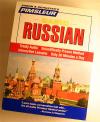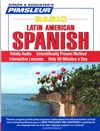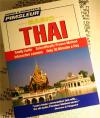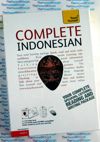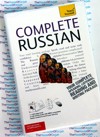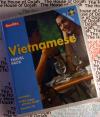Teach Yourself Slovene - 2 Audio CDs and Book - Learn to speak Slovene
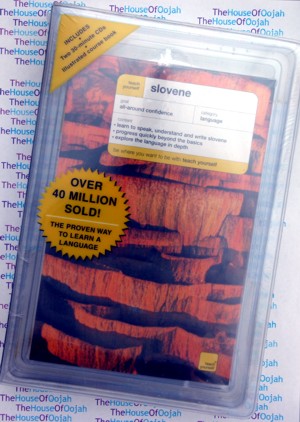
Teach Yourself Slovene2 CDs and Book Audio CDGet Other Teach Yourself Language Learning Audio click here |
 |
Teach Yourself Slovene - 2 Audio CDs and BookBrand New (still shrink wrapped): 2 CDs and Book
* GRAMMAR IS CLEARLY EXPLAINED - in simple English Table of Contents: About the Author:Andrea Albretti taught Slovene at the British Foreign Office. About the Slovene LanguageSlovene or Slovenian is a South Slavic language spoken by approximately 2.4 million speakers worldwide, the majority of whom live in Slovenia. Slovene is one of the 23 official and working languages of the European Union. Standard Slovene is the national language that evolved from the Central Slovene dialects in the 18th century and consolidated itself through the 19th and 20th century. While distinct regional varieties descended from the older rural dialects still exist, the spoken and written language is uniform and standardized. Some dialects differ considerably from the standard language in grammar and vocabulary. Though not facing imminent extinction, such dialects have been in decline during the past century, despite the fact that they are well researched and their use is often encouraged by local authorities. The distinctive characteristics of Slovene are dual grammatical number, two accentual norms, one characterized by pitch accent, and abundant inflection (a trait shared with many Slavic languages). Although Slovene is basically a SVO language, word order is very flexible, often adjusted for emphasis or stylistic reasons. Slovene has a T-V distinction: second-person plural forms are used for individuals as a sign of respect. Also, Slovene and Slovak are the two modern Slavic languages whose names for themselves literally mean "Slavic" Alongside Croatian and Serbian, Slovene is an Indo-European language belonging to the Western subgroup of the South Slavic branch of the Slavic languages. It transitions to the Kajkavian and Čakavian dialect of Croatian, but is less close to the Štokavian dialect, the basis for the Bosnian, Croatian and Serbian standard language. Like all Slavic languages, Slovene traces its roots to the same proto-Slavic group of languages that produced Old Church Slavonic. The earliest known examples of a distinct, written Slovene dialect are from the Freising manuscripts, known in Slovene as Brižinski spomeniki. The consensus estimate of their age is between 972 and 1093 (most likely in the later years of the range). These religious writings are among the oldest surviving manuscripts in any Slavic language. Literary Slovene emerged in the 16th century thanks to the works of Reformation activists Primož Trubar, Adam Bohorič and Jurij Dalmatin. During the period when present-day Slovenia was part of the Austro-Hungarian Empire, German was the language of the elite, and Slovene was the language of the common people. During this time, German had a strong impact on Slovene, and many Germanisms are preserved in contemporary colloquial Slovene. Many Slovene scientists before the 1920s also wrote in foreign languages, mostly German, the lingua franca of science at the time. The cultural movements of Illyrism and Pan-Slavism brought words from Serbo-Croatian and Czech into the language. For example, Josip Jurčič, who wrote the first novel in Slovene, published in 1866, used Serbo-Croatian words in his writing. During World War II, when Slovenia was divided between the Axis Powers of Fascist Italy, Nazi Germany, and Hungary, the occupying powers suppressed the Slovene language. Following World War II, Slovenia became part of the Socialist Federal Republic of Yugoslavia. Slovene was one of the official languages of the federation. On the territory of Slovenia, it was commonly used in most areas of public life. One important exception was the Yugoslav army where Serbo-Croatian was used exclusively even in Slovenia. National independence has revitalized the language: since 1991, when Slovenia gained independence, Slovene has been used as an official language in all areas of public life. It also became one of the official languages of the European Union upon Slovenia's admission in 2004. The language is spoken by about 2.4 million people, mainly in Slovenia, but also by Slovene national minorities in Venetian Slovenia and other parts of Friuli-Venezia Giulia in Italy (more than 100,000), in Carinthia and other parts of Austria (25,000). It is also spoken in Croatia, especially in Istria, Rijeka and Zagreb (11,800-13,100), in southwestern Hungary (6,000), in Serbia (5,000), and by the Slovene diaspora throughout Europe and the rest of the world (around 300,000), particularly in the United States, Canada, Argentina, Australia and South Africa.
|
Teach Yourself Slovene - 2 Audio CDs and Book |
| Retail: | $110.00 |
| On Sale: | $99.95 |
| You Save: | 10% |
| Stock Info: | Out Of Stock |
| Receive In Stock Notification |

 0 Items (Empty)
0 Items (Empty)

